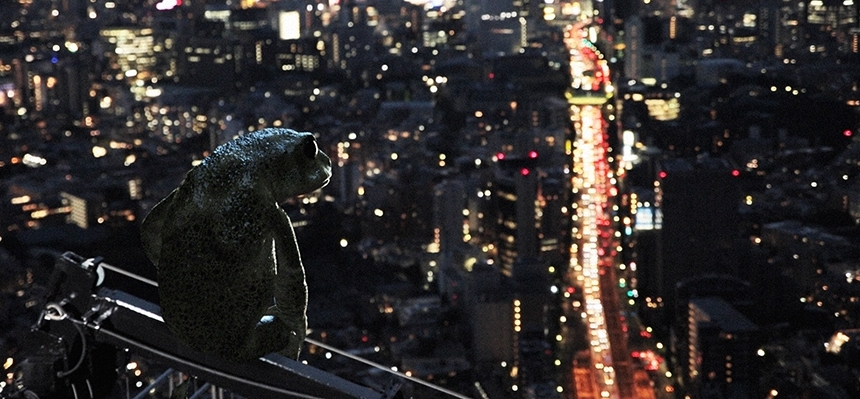Hot Docs 2018 Review: DREAMING MURAKAMI, Found In Translation

The perfect sentence does not exist. Language is a way of thinking, but it is a boundary, not the infinite. Perhaps, there is a perfect thought. Or a perfect dream. There is very likely a perfect musical note. Language remains messy and communication is complicated. These are many of the ideas at play in Natesh Anjaan's Dreaming Murakami.
The documentary focuses on Mette Holm, the soft spoken, white haired woman who has been translating Haruki Murakami's novels for Denmark's publishers for nearly the entirety of her career. We see her translating of Murakami's first novel over the course of the film, which is as loaded a title as any (English title: Hear The Wind Sing) for a Japanese novel being reconfigured for Danish readers and being captured on film. There are many conceptual nuggets to be found in translation here.
Anjaan intercuts Holm's process and struggles (one in particular involves learning the minutiae of a pinball machine) with an adaptation of a Murakami short story, Super-Frog Saves Tokyo, as if the nuances of translation between ideas and language is not complicated enough, and uses the images of a CGI frog as a metaphor for doing the invisible art of good translation. There is a treasure trove of Murakami notions and imagery at play, but the film never panders to the dedicated Murakami fan; it aims to stretch one's understanding of a body of work that the majority of the readership has probably only consumed in translation.
"It is important that we understand one another. It is a serious manner," says the frog, as we listen to Holm try to find the right word or phrase to capture the essence of Murakami's dreamy prose, particularly when no literal translation exists between two vastly different cultures. Murakami himself often writes about two parallel worlds; there are many mirrors at play. It is a nearly perfect fit for Holm's academic life with her cats and her university talks, and the unseen Japanese author who lurks in the subject of her endeavours. It is also a love story, of sorts; if your definition of love is truly attempting a deep understanding of your parter.
Part scholar, part stalker, but dedicated invisible artist, she travels to Japan often enough, and there, wonderful scene sees her drinking a lonely cocktail at end of a long bar, while the bartender spontaneously belts out a karaoke version of The Velvets' Lana from behind the tumblers and stemware. It is unexpected, almost Lynchian (Roy Orbison on the soundtrack does that) and wonderfully dense. It encapsulates the very rewarding 60 minutes of Dreaming Murakami trying to find perfection by embracing all the blemishes of our intercourse.







